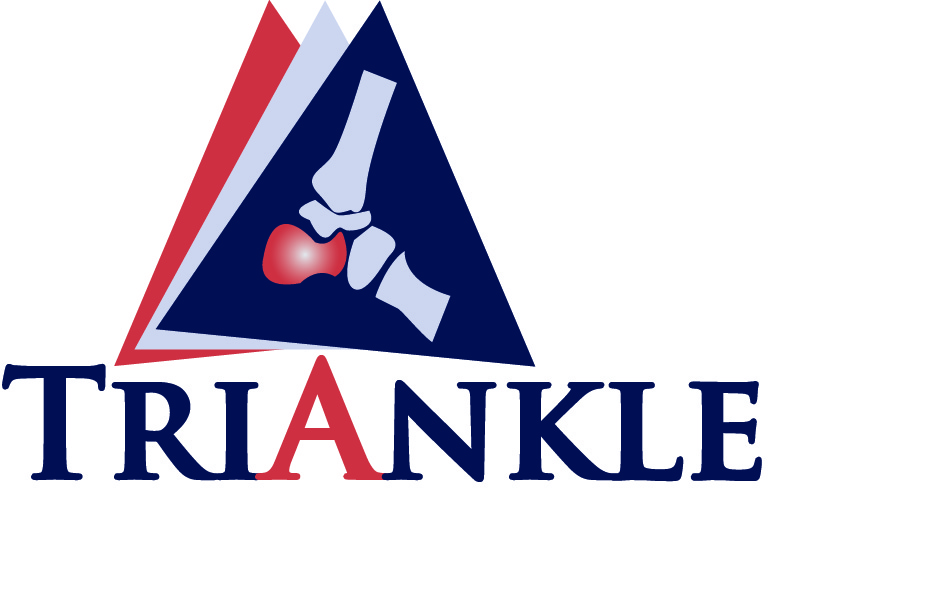European TRIANKLE project will develop 3D bioprinted personalised scaffolds for tissue regeneration of ankle joint
The Research consortium is composed of 12 partners from 5 European countries and counts with a EU funding of €5.9M. TRIANKLE will provide fabrication of personalized implants for injured tendons or cartilages. Fraunhofer IGB will formulate and develop collagen- and gelatine-based bio-inks needed for 3D printing the personalised implants while the IGVP at the University of Stuttgart will research the bio-ink crosslinking chemistry and 3D-printing of bio-inks. The main objective is to reduce the time of recovery down to 50% and increase the functionality ratios by 10-15%. The project aims at boosting competitiveness of the EU biomedical sector.

Regenerating ankle joints with collagen- and gelatine-based implants
Today, the grant agreement No: 952981 funded by the European Commission (Horizon 2020 Program) by which the TRIANKLE project comes into operation has been signed.
The TRIANKLE consortium – made up of 12 European organisations, will develop 3D bioprinted personalised scaffolds for tissue regeneration of ankle joints. This ambitious research project in regenerative medicine comes with an overall budget of €5.9M and will be developed over 4 years, starting January 2021. The consortium aims to create innovative personalised collagen- and gelatine-based implants manufactured with 3D technology for patients with tendinopathies such as Achilles tendon partial ruptures and cartilage injuries.
Collagen and gelatine are biopolymers also occurring in the body. "In order to process these biopolymers together with growth factors and cells with a 3D printer, they must be flowable," explains Dr. Achim Weber from the Fraunhofer Institute for Interfacial Engineering and Biotechnology IGB in Stuttgart, one of the German research partners in the network. "We are therefore formulating and developing collagen- and gelatine-based bio-inks that only become solid after printing by crosslinking the biopolymers. Here, the Fraunhofer IGB works closely with the neighbouring Institute of Interfacial Engineering and Plasma Technology IGVP at the University of Stuttgart. "By incorporating functional groups, we can optimally control the crosslinking of the biopolymers used and ensure that the collagens and gelatins also become form-stable after the printing process," adds Dr. Alexander Southan from the IGVP at the University of Stuttgart.
A common and expensive health problem
Tendinopathies and osteoarthritis (OA) are extremely common, especially among the elderly, women and professional athletes. In addition to quality of life, both conditions substantially impact healthcare systems of economies (OA costs €76.5 billion in EU every year, while tendinopathies have an estimated worldwide expenditure above €140 billion).
Filling the gap of ineffective treatments
The project aims to fill the critical gap created by the lack of effective treatments currently available. None of the existing surgical or non-surgical alternatives have provided a successful long-term solution for patients, and often the treated tissues do not recover their complete strength and functionality. In this context, TRIANKLE’s objectives will be to reduce recovery time by 50% and, at the same time, increase the functionality ratios of the injured tissue by 10%-15%.
Partnership: From advanced research to potential market
TRIANKLE consortium consists of a team of 12 organisations covering the complete spectrum from advanced research to the market. Its main strength relies on the combination of highly skilled partners with proven track records in biomaterials for regenerative applications and 3D bioprinting technology with partners that are also devoted to social engagement and dissemination of results to healthcare professionals and, ultimately, potential patients. A total of 12 organisations from 5 different countries (Germany, Spain, Sweden, the Netherlands, and the United Kingdom) make up the TRIANKLE consortium. The partnership includes one industry partner (Naturin Viscofan GmbH), three SMEs (CELLINK AB, Cambridge Nanomaterials Technology, and Gradocell SL), two research centres (Fraunhofer Institute for Interfacial Engineering and Biotechnology IGB and Acondicionamiento Tarrasense Associacion), three universities (University of Stuttgart, Universidad del País Vasco and Eindhoven University of Technology), two non-profit organisations (Futbol Club Barcelona Asociacion FCB and Osteoarthritis Foundation International OAFI) and one healthcare institution (Fundacio Clinic per a la Recerca Biomedica). The TRIANKLE project coordinator is Naturin Viscofan GmbH.
TRIANKLE will contribute to unlocking the potential of innovative 3D printing technology for regenerative medical applications and ultimately enable the commercialization of 3D-printed personalised regenerative solutions. Furthermore, the innovation potential of TRIANKLE lies in the launching of the technological platform that will enable the development of future regenerative therapies of joint tissues in weight-bearing joints.
 Fraunhofer Institute for Interfacial Engineering and Biotechnology IGB
Fraunhofer Institute for Interfacial Engineering and Biotechnology IGB